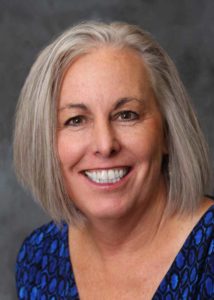
Director of Early Childhood Mental Health
Colorado Department of Human Services

Colorado Office of Early Childhood
An Interview with Catherine Strode
Jordana Ash is the first individual to hold the state’s new position of Director of Early Childhood Mental Health. She has developed the Strategic Plan to promote early childhood mental health across Colorado. Mary Anne Snyder is the Director of the State’s Office of Early Childhood, another relatively new state position. They sat down for an interview with Catherine Strode to discuss how their positions represent Colorado’s movement as a national leader in early childhood support systems.
What are Colorado’s strengths in early childhood supports?
Mary Anne: “The strengths in Colorado include our ability to successfully compete and be rewarded a nearly $45 million dollar Race to the Top Early Learning Challenge grant. This opportunity from the federal government has had significant impact in how we serve children and our ability to increase quality. There were a number of things accomplished as a result of that grant, including building the state’s first professional development information system. That technology has allowed Colorado to identify our current early care and education work force. It also has allowed us to provide training that is necessary to become a licensed child care provider, free of charge. The federal money also allows for significant quality grants to early care and education facilities. Most visibly, the state created a quality rating and improvement system that is attached to licensing. Providers can go to a variety of quality assessments in order to be rated Levels Two to Five. A major reform of the Child Care Assistance Program is now requiring that counties provide larger daily rates for those programs that are rated high quality.”
How does Colorado compare nationwide in this area?
Mary Anne: “I would actually suggest that Colorado is seen as one of the leaders in the nation. The Secretary of the Department of Education singled out Colorado as really leading this work.”
Jordana: “Another example of that is actually my position. There are very few states that have a position like mine that is dedicated to providing internal and external expertise on infant and early child mental health across Colorado. That’s another example of Colorado being ‘ahead of the curve’ in terms of thinking about the needs of very young children, their parents and caregivers.”
Mary Anne: “Colorado is part of a handful of states that led in terms of creating a state Office of Early Childhood. The Office turned four years old this past summer. Under the Governor’s leadership, a number of programs were identified that sat in a whole variety of places. Colorado’s Department of Public Health and Environment, the Lieutenant Governor’s Office, the Office of Behavioral Health, the Department of Education all had programs that focused on children zero to five. States are increasingly recognizing that bringing all that systemic work together under one office and working to align for efficiencies is the way to go. We’ve accomplished a lot in the past four years by creating this new office.”
What does research indicate on the importance of this age range for a child’s well-being?
Jordana: “The brain architecture is being developed in these early years. While it doesn’t mean you can’t have remediation later, it’s more difficult and more expensive after these windows of growth close.”
Mary Anne: “We know that there are 700 to 1,000 new neural connections formed every second in the first few years of life. It’s foundational. Those first five years matter for all kinds of reasons, for later success in learning in life.”
Jordana: “The Harvard Center on the Developing Child has clearly amalgamated the research on this topic . We look to those national resources when we’re making the case for our (state’s) investments. We have a lot of support here in Colorado for a wide range of programming that does focus on zero to five, or zero to eight, and the families and caregivers that support young children. It’s really looking at the capacity of the adults in children’s’ lives and supporting that to positively affect young children. We need to ensure that those adults can provide nurturing and stability for the young child because the adult provides a buffer to the young child who may be experiencing adversity.”
Where are the gaps in the state’s early childhood supports?
Mary Anne: ”Part of the gap is getting the word out about the importance of early childhood to many stakeholders: policy and decision makers, investors, families, so they understand the importance of these early years. Building the will to invest early and robustly is important.”
Jordana: “The gap I would share is in terms of our workforce. Institutions of higher education don’t have programs where they’re training people to provide early childhood mental health consultation. The work force is cobbled together through trainings, professional development, support, and supervision. We would like to see our higher education system also be focused on this important time period as an area of study. Then we would have individuals available to fill the roles of early childhood mental health consultant for: child care, home visiting, integrative behavioral health in pediatric or primary care offices. There are lots of places where we could deploy the work force that was trained in these issues. We’re just not there yet.”
 Catherine Strode is Advocacy Denver’s Communications and Policy Specialist. She holds a Masters degree in Public Administration with an emphasis in Health Care Policy. Catherine publishes Policy Perspective, featuring interviews with state policy makers on issues that affect the work and mission of Advocacy Denver.
Catherine Strode is Advocacy Denver’s Communications and Policy Specialist. She holds a Masters degree in Public Administration with an emphasis in Health Care Policy. Catherine publishes Policy Perspective, featuring interviews with state policy makers on issues that affect the work and mission of Advocacy Denver.
